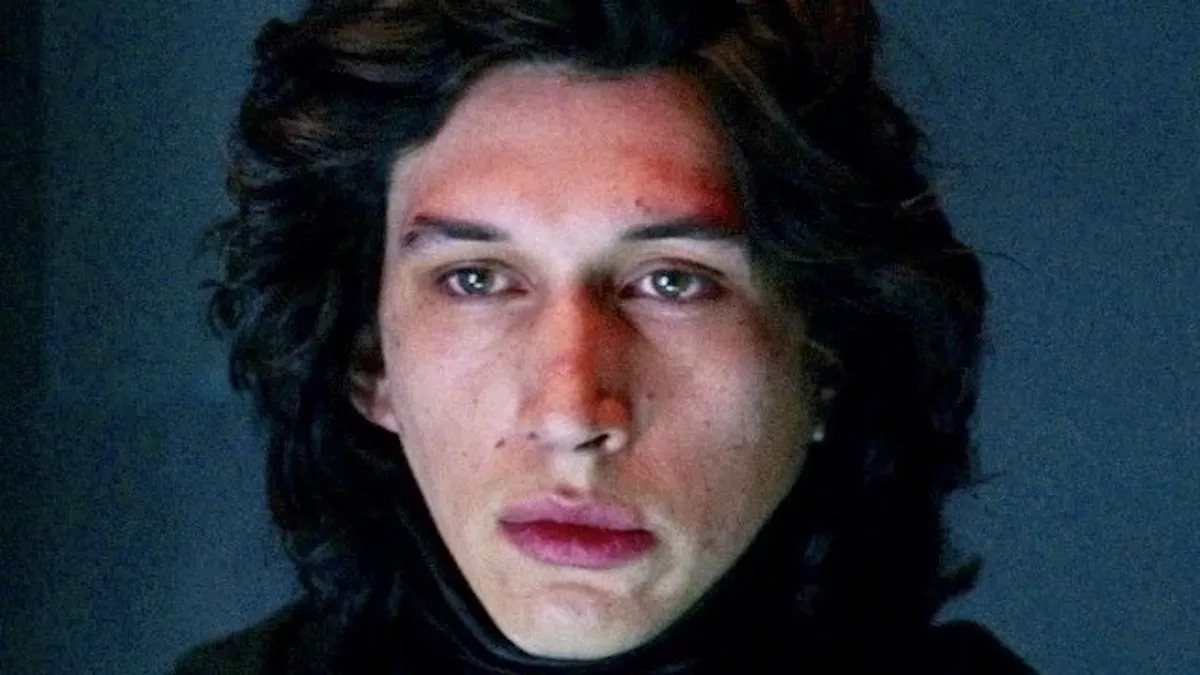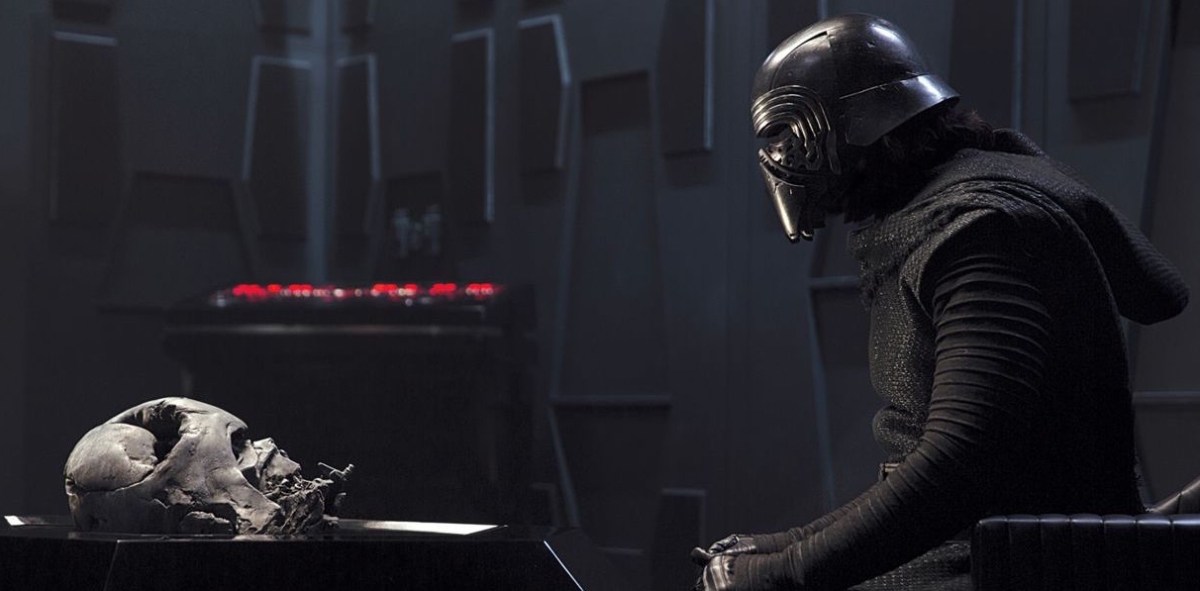We all love a good redemption arc and a good heroic sacrifice. The problem with Redemption by Death is that it is an unfulfilling use of either.
**Spoilers for Return of the Jedi, Rise of Skywalker, Stranger Things season 3, and Avatar: The Last Airbender.**
There are many reasons Death by Redemption is a prominent trope, such as the reasons listed by none other than TV Tropes: “It shows that the ex-villain is serious about helping the heroes, enough to risk death to save them… It may be that the bad guy is just so bad that it’s hard to accept the idea that they get a happy ending even if they’ve sincerely changed their ways, and so they have to die to make things seem right… Maybe the author is reluctant to change the status quo of the story by introducing an Anti-Hero to the cast but still wants an antagonist to be sympathetic, so they have the villain redeem themselves before dying…”
When ending a trilogy or season, it’s understandable to not want to leave any loose ends and to want to have a bow put on everything, but to end a series with a main antagonist “redeeming” themselves and then promptly dying means that they neither experience true consequences for their actions, nor do they ever get the opportunity to make themselves better.
If the Malfoys managed to avoid Azkaban after everything they did with next to no explanation, it’s hard to imagine that other antagonists shouldn’t be afforded the same opportunities.
Kylo Ren
I knew it was inevitable. From the moment I heard the first Rise of Skywalker trailer featuring Kylo Ren’s theme in a major key, I knew he was going to be “redeemed.” However, foreshadowing is not character development (Game of Thrones season 8, for example), and while he is a character haunted by guilt, it is typically only for hurting the people he cares about. His grievous torture of Poe and his mutilation of Finn are never discussed after The Force Awakens.
He is an active antagonist and dictator for a decent portion of Rise of Skywalker, fighting on the front lines, leading raids, and beheading spies with all the fervor of the previous two films. Contrast this to Ren’s own grandfather, Darth Vader, who was very subdued in Return of the Jedi, where every action he takes is to save his son (by turning him to the dark side, but still).
I will say that his scenes with Rey, Leia, and Han are emotional and do set his redemption in a less self-serving light, since his goal is not just protecting Rey but making sure that his mother’s life’s work and ultimately her sacrifice are not in vain. It’s only after willingly wading into a war without a lightsaber to defend himself that he earns Anakin Skywalker’s lightsaber (which, in an ironic subversion, happens to be the same weapon Vader used at the start of his darkness).
At the end of it all, he does have a chance to walk away and start anew, after Palpatine and his fleet are defeated, but instead chooses to give his life to save the woman he loves—though it should be noted that his most selfless act is not for the galaxy as a whole, but for one person for whom he personally cares.
Even fans of Ben Solo’s redemption are aggravated by the implication that he had to die in order to be fully redeemed, as it not only limits any story continuation (and formally ends the Skywalker bloodline), but also frames him as never being allowed to live in the galaxy he helped save. And while we must condemn fascists and evildoers, can there be any redemption for them if they are not able to be accepted back into society once they change?
Billy Hargrove
Stranger Things’ Billy Hargrove is probably the most egregious example of this in recent media. After being a racist, sexist, and abusive older brother to his stepsister, Max, season 2 ended with Max threatening to castrate him with a nailed baseball bat if he didn’t stop abusing her and her friends. Afterwards, they seem to have reached a tentative peace that amounts to having as little to do with each other as possible—an overall cathartic moment of a victim standing up to her abuser.
In season 3, they don’t even interact until after he is already under the control of the Demo-Thing Mind Flayer. By that point, any of his attempts at reconciliation are layered with manipulation. This doesn’t stop both Max (who, one season ago, was ready to castrate him) and Eleven from sympathizing with him, especially after Eleven sees Billy’s memories of his mother leaving his abusive father and how Billy was subsequently “corrupted” by said father.
Eleven, of course, is sympathetic to Billy’s plight, having had an abusive “father” herself in Dr. Brenner. However, unlike Billy, Eleven did not let her father’s abuse excuse her actions. Though she once claimed to be a monster, Eleven has done everything in her power to right the “wrongs” she committed, risking her life to save her friends and close the gate she opened. Billy does not attempt any heroism until the very last moment, rescuing Eleven and apologizing to Max as he lays dying.
It’s a nice moment, but somewhat undercut by the fact that Billy had not been shown interacting with his stepsister in a meaningful capacity since before being flayed and had similarly not even met Eleven until being flayed. Additionally, Lucas’ lack of relevance in this arc feels especially strange, considering that, apart from Max, he is the one most threatened by Billy’s abuse in Season 2.
It feels a bit like the show was hoping to not have to address Billy’s horrible racism. Even Max gets stiffed in an arc that probably should have focused more on her, since her tearful pleading with Flayed!Billy and lack of fighting back against him feels both naive and out of character for someone who one season ago was ready to beat him with a nailed baseball bat.
If they had shown the two interacting in a less abusive or manipulative way before he was flayed, maybe it would have been easier to buy. As it is, Flayed!Billy feels more like the typical defense of young men who get a free pass to be horrible people because “they had a horrible childhood,” (never mind that Max and Eleven have had similarly rough upbringings). The fact that he dies while “redeeming” himself also feels like a cop-out to avoid having to deal with the implications of actually redeeming a racist, sexist, abusive older sibling.
—
To fully see the problem with these lackluster redemptions, look at Avatar: The Last Airbender, which is the gold standard of redemption arcs, not just because Zuko ends up redeeming himself, but because we got to see the process of it. From Season 1, we saw how moral and truly devoted to his nation he was, going so far as to try to save a rival general who attempted to assassinate him. When he does act in immoral ways, the show calls him out for it, forces him to suffer consequences, but also allows him the chance to make things right. Even when he is rewarded for immoral actions after the Season 2 finale, he comes to the conclusion that he was in the wrong all along and corrects his mistakes over the latter half of Season 3.
Now, imagine if, in Season 3, instead of coming to his own conclusions about the Fire Nation and his family over the course of half a season and then having another half of a season of him working with the good guys, Zuko had turned against his father and sister at the finale of the series because he had fallen in love with Katara, only to die in his duel against his sister. It would have been an interesting twist, but not nearly as intriguing or satisfying as seeing Zuko interact with the Gaang, teach Aang, help Katara move past her need for vengeance, make up with Mai, and eventually rise up to be the “damaged” but understanding leader that the Fire Nation needed.
Redemption is a difficult thing to earn, but it is possible. Death should not be either a requirement or an automatic fulfillment. If movies and TV shows truly want to redeem a villain, then it needs to be a process built up over more than just one episode (be it TV or movie), and one that shows the true depths of character for the antagonist in question. While it can be done well, in many cases, Death by Redemption ends up as either a waste of a good character and arc, or the problematic penance of people who have not done anything to earn true redemption.
(featured image: Disney/Lucasfilm)
Want more stories like this? Become a subscriber and support the site!
—The Mary Sue has a strict comment policy that forbids, but is not limited to, personal insults toward anyone, hate speech, and trolling.—












Published: Jan 20, 2020 02:00 pm